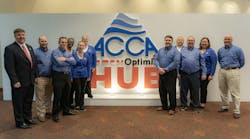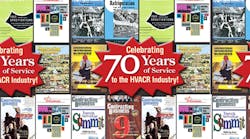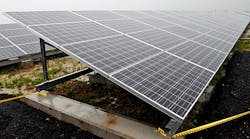It’s a mad, mad, world. Everyone is running in circles trying to save the environment and to find ways to use energy more efficiently and wisely. But every time we try to make sense of our energy future, things just get complicated.
For example, early in February, a commission set up by the Alliance to Save Energy laid out an energy efficiency roadmap for the U.S. through the year 2030. Known as the Alliance Commission on National Energy Efficiency Policy, this group is made up of corporate officials, politicians, and environmentalists. Sounds great, right?
According to an article from Reuters (bit.ly/AllianceRM), the commission believes that the U.S. can double energy productivity over the next 20 years by boosting investments in energy efficiency, reforming tax credits for energy savings, and engaging with state and local governments.
The article explained that efficiency is one area of our country’s energy policy that might actually gain support in a divided Congress in 2013. It also said the commission was calling for the government to invest more in research/development.
This absolutely sounds good to me. And, it seems there’s already movement on the reformatting of the rules with the recent announcement that the Department of Energy (DOE) is rescinding its pending energy conservation standards for residential natural gas furnaces.
This decision follows on the footsteps of a lawsuit filed against the DOE by the American Public Gas Association (APGA) and other organizations, including the Air Conditioning Contractors of America (ACCA). The suit asked the U.S. Appeals Court in the District of Columbia to vacate the rule and restart the process of devising new furnace efficiency standards. APGA and DOE came to a settlement agreement. Now we must wait for the court ruling.
The reason for the suit? According to spokespeople at APGA, low-income customers might switch to electrical or kerosene heaters instead of paying the higher cost of installing high-efficiency furnaces. They argued that such a rule might actually hurt efficiency.
Obviously this settlement is a setback for energy efficiency advocates, but it sets the stage to make rules that not only enforce efficiency, but that also make sense.
Here comes the complicated part:
According to a recent blog post (bit.ly/CM_RuleSettle) by Charlie McCrudden, ACCA’s vice president for government relations, the settlement is still up in the air. He writes, “The joint settlement motion filed by the principal parties in the lawsuit must be ruled on by a panel of judges from the U.S. Court of Appeals to make it final.
He says the court will either grant or reject the agreement. It’s anyone’s guess how long it will take for the court to rule. The key is that until the court makes the settlement final, the new standards and the May 1, 2013, compliance date are still in effect.
So now we’re in a holding pattern. Meanwhile contractors are out selling replacement furnaces and boilers to customers who are hearing lots of pro and con sentiments about the efficiency standards. How do you answer consumer questions about this?
I’ve long held that regional efficiency standards, in their current form, had the potential to create negative backlash and confusion in the marketplace. I’m also of the opinion that anything we can do to conserve energy and be good environmental stewards makes a lot of sense. But for our industry to thrive and for the U.S. economy to get well, all things we do must also make economic sense as well.
I know this is hard stuff. It requires consensus and team work. In political terms, it means a bipartisan approach to problem solving. And sometimes it means having to be patient while the lawyers and judges decide our fates.
Wouldn’t it be great if the U.S. Appeals Court listened to the marketplace and made their decisionquickly so we can get on with the work of creating the proper rules? Let’s try to uncomplicate the process and stop the madness.











